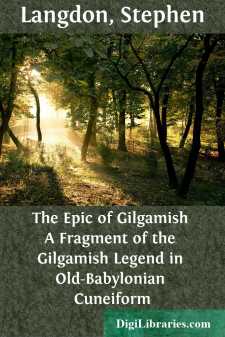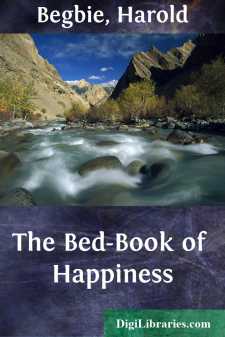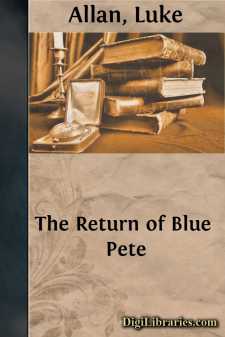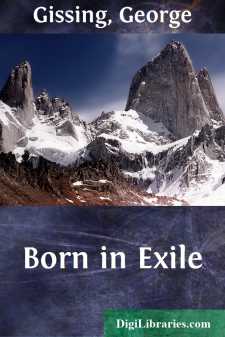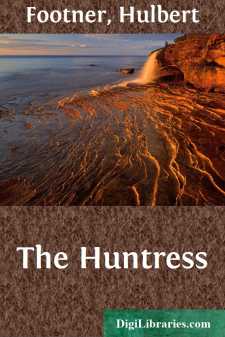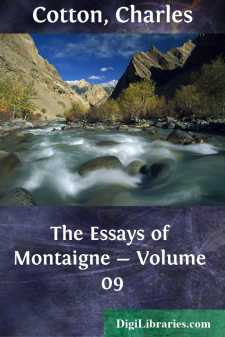Literary Collections
- American 84
- Ancient, Classical & Medieval 14
- Asian 1
- Australian & Oceanian 1
- Canadian 55
- Continental European 121
- English, Irish, Scottish, Welsh 179
- Essays 160
- General 24
- Letters 46
- Middle Eastern 1
Literary Collections Books
Sort by:
by:
Stephen Langdon
Introduction In the year 1914 the University Museum secured by purchase a large six column tablet nearly complete, carrying originally, according to the scribal note, 240 lines of text. The contents supply the South Babylonian version of the second book of the epic ša nagba imuru, “He who has seen all things,” commonly referred to as the Epic of Gilgamish. The tablet is said to have been found at...
more...
by:
Various
THE ROMANTIC PHILOSOPHERS—FICHTE, SCHELLING, AND SCHLEIERMACHER By FRANK THILLY, PH.D., LL.D. Professor of Philosophy, CornellUniversity The Enlightenment of the eighteenth century had implicit faith in the powers of human reason to reach the truth. With its logical-mathematical method it endeavored to illuminate every nook and corner of knowledge, to remove all obscurity, mystery, bigotry, and...
more...
by:
Harold Begbie
THE BED-BOOK OF HAPPINESS THEISSE[Sidenote: Richter] In his seventy-second year his face is a thanksgiving for his former life, and a love-letter to all mankind. RICHTER[Sidenote: Carlyle] We have heard that he was a man universally loved, as well as honoured … a friendly, true, and high-minded man; copious in speech, which was full of grave, genuine humour; contented with simple people and simple...
more...
by:
Luke Allan
CHAPTER I MAHON ON THE TRAIL Sergeant Mahon emptied the barracks mail bag on the desk before Inspector Barker and stood awaiting instructions. The Inspector passed his hand over the small pile of letters and let his eye roam from one to another in the speculative way that added zest to the later revelation of their contents. One from headquarters at Regina he set carefully aside. With an "ah!"...
more...
THE SPIRIT OF PLACE With mimicry, with praises, with echoes, or with answers, the poets have all but outsung the bells. The inarticulate bell has found too much interpretation, too many rhymes professing to close with her inaccessible utterance, and to agree with her remote tongue. The bell, like the bird, is a musician pestered with literature. To the bell, moreover, men do actual violence. You...
more...
by:
Andrew Lang
JOHN AMEND-ALL On a certain afternoon, in the late spring-time, the bell upon Tunstall Moat House was heard ringing at an unaccustomed hour. Far and near, in the forest and in the fields along the river, people began to desert their labours and hurry towards the sound; and in Tunstall hamlet a group of poor country-folk stood wondering at the summons. Tunstall hamlet at that period, in the reign of old...
more...
by:
George Gissing
CHAPTER I The summer day in 1874 which closed the annual session of Whitelaw College was marked by a special ceremony, preceding the wonted distribution of academic rewards. At eleven in the morning (just as a heavy shower fell from the smoke-canopy above the roaring streets) the municipal authorities, educational dignitaries, and prominent burgesses of Kingsmill assembled on an open space before the...
more...
by:
Calvin Thomas
PREFACE This book is designed to accompany an introductory study of the history of German literature. It is assumed that the history itself will be learned, so far as necessary, either from lectures or from some other book devoted to the subject. As the selections were made, for the most part, while I was writing my own short history of German literature for the series published under the general...
more...
by:
Hulbert Footner
CHAPTER I From within the teepee of Charley Whitefish issued the sounds of a family brawl. It was of frequent occurrence in this teepee. Men at the doors of other lodges, engaged in cleaning their guns, or in other light occupations suitable to the manly dignity, shrugged with strong scorn for the man who could not keep his women in order. With the shrugs went warning glances toward their own laborious...
more...
by:
Charles Cotton
CHAPTER I OF THE INCONSTANCY OF OUR ACTIONS Such as make it their business to oversee human actions, do not find themselves in anything so much perplexed as to reconcile them and bring them into the world's eye with the same lustre and reputation; for they commonly so strangely contradict one another that it seems impossible they should proceed from one and the same person. We find the younger...
more...


